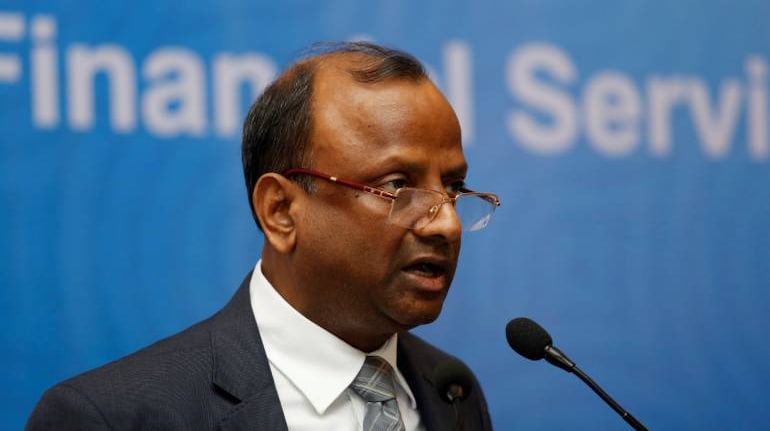



The top bosses of PSU banks and top central bankers are taking up private assignments after retirement is not new. The latest such case is former SBI Chairman Rajnish Kumar joining the Kotak Mahindra Group. Kumar retired from the country's largest lender on October 6, 2020.
Four months later after his exit, Kumar joined Kotak Investment Advisors, a wholly-owned subsidiary of Kotak Mahindra Bank, as an exclusive adviser for its $1-billion special situation fund. There is a one-year cool-off period for retired PSU bank officials before taking up a private assignment.
But, it is learned that Kumar has got a NoC (no-objection certificate) from the Government of India to get an exemption from the one-year cooling off rule. So, there are no technical issues with this appointment.
Kumar’s predecessor in office Arundhati Bhattacharya, who retired in October 2017 as the SBI chairman, took up her first major executive role when she joined SWIFT India a year later. Bhattacharya later moved on to a different job as the India CEO of US Cloud-based service provider, Salesforce.com Inc in March 2020. After her retirement, Bhattacharya also served as an adviser or Board member at different companies. Bhattacharya completed her one-year cooling-off period before accepting these assignments.
Similarly, Bhattacharya’s immediate predecessor, Pratip Chaudhuri is also a director on the Boards of multiple companies but never took up an advisory role. There are other former top bosses of SBI such as O P Bhatt, P C D Nambiar and A K Purwar who, too, have joined different companies as Board members.
Top bankers who retired from other PSU banks, too, have taken up private assignments. One such example is R K Bansal, who retired as executive director at IDBI Bank, joined as managing director of Edelweiss ARC in June, 2018.
Now, what about regulators? Former RBI deputy governor, R Gandhi - who retired from the central bank in 2017 - accepted a job at Paytm in June 2018 as an adviser and a board member in Yes Bank in May, 2019.
Similarly, S S Mundra - the former RBI deputy governor and former chairman and managing director of Bank of Baroda, joined as non-executive chairman of Indiabulls Housing Finance in August 2020.
Mundra had retired in July, 2017 from RBI as one of the DGs. Mundra is also associated with an ARC (asset reconstruction company) as an advisor. Another former deputy governor, Anand Sinha - who retired in January 2014 - took up a job in global private equity firm, KKR as an advisor in April 2015 while Shyamala Gopinath had stints as advisor to consultancy firm, Ernst and Young and as the chairman of HDFC Bank in January 2015 till end of last year. These are some of the examples.
What prompts the former PSU Bankers and regulators to take up private jobs? One of the key factors is attractive pay. Private firms pay very well to experienced former high-profile bankers. In the banking circles, there is a joke that the private employers pay the retired PSU bankers and regulators many times more than what they earned during their entire career in just the four or five years at the job. One of the former SBI chairpersons received Rs 5-6 crore annual compensation through private assignments. There are others too who have drawn hefty pay packages.
There is nothing wrong with a professional doing what he or she wants to do.
But there is a genuine question on the likely possibility of conflict of interest in some of these cases. There has been criticism on such appointments from certain quarters. For instance, bank employee unions have been questioning the logic of top PSU bankers moving to the private sector after endorsing the public sector throughout their career.
 Also, one can argue that these bankers and regulators were once part of the many business proposals involving their future employers directly or indirectly; so are former regulators. Such appointments are always sensitive and hence the requirement to seek prior approvals before the cooling off period.
Also, one can argue that these bankers and regulators were once part of the many business proposals involving their future employers directly or indirectly; so are former regulators. Such appointments are always sensitive and hence the requirement to seek prior approvals before the cooling off period.
Question is can the prospects of possible post-retirement slots influence crucial business decisions of regulators and senior bankers who are serving their final years in the job? Is there a mechanism that effectively addresses the possible conflict of interest in such private assignments taken up by former regulators and top PSU bankers? This is a larger question that needs to be debated.
(Banking Central is a weekly column that keeps a close watch and connects the dots about the sector's most important events for readers.)
Discover the latest Business News, Sensex, and Nifty updates. Obtain Personal Finance insights, tax queries, and expert opinions on Moneycontrol or download the Moneycontrol App to stay updated!
Find the best of Al News in one place, specially curated for you every weekend.
Stay on top of the latest tech trends and biggest startup news.